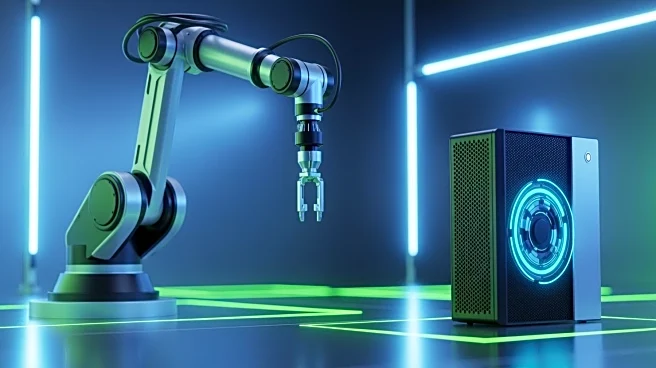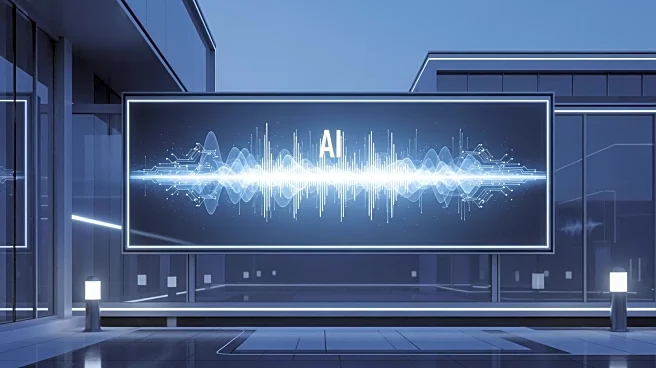What's Happening?
Industry 4.0, initially launched by the German government in 2011, has evolved into a comprehensive framework for modern manufacturing operations. It integrates physical and digital domains through technologies
like the Industrial Internet of Things (IIoT), big data analytics, AI, machine learning, and edge computing. These advancements enable smart factories to operate with seamless machine and system communication, enhancing operational efficiency and sustainability. The current phase of Industry 4.0 focuses on large-scale deployment, with AI systems at the core of manufacturing processes, driving predictive maintenance, quality control, and production scheduling.
Why It's Important?
The transformation brought by Industry 4.0 is pivotal for the manufacturing sector, as it enhances productivity, reduces waste, and supports sustainable practices. By leveraging AI and edge computing, manufacturers can optimize energy usage, improve supply chain resilience, and adapt to changing market demands. The shift towards hyperautomation and autonomous factories represents a significant leap in operational capabilities, allowing for more efficient and flexible production processes. This evolution also supports the circular economy and net-zero targets, aligning with global sustainability goals.
What's Next?
As Industry 4.0 continues to advance, the focus will be on overcoming challenges such as standardization, digital transformation costs, and cybersecurity. The integration of 5G and edge AI will further enhance real-time control and decision-making capabilities, enabling more responsive and adaptive manufacturing environments. The development of digital twins and augmented reality will play a crucial role in optimizing operations and upskilling workers, fostering a human-machine partnership that enhances productivity and safety.
Beyond the Headlines
The ongoing evolution of Industry 4.0 raises important considerations regarding the ethical use of AI and the impact on workforce dynamics. As automation becomes more prevalent, there is a need to address cultural and skill-related barriers to ensure successful adoption. The focus on human-centered design and responsible innovation will be essential in creating an industrial future that balances technological advancement with social and ethical responsibilities.











